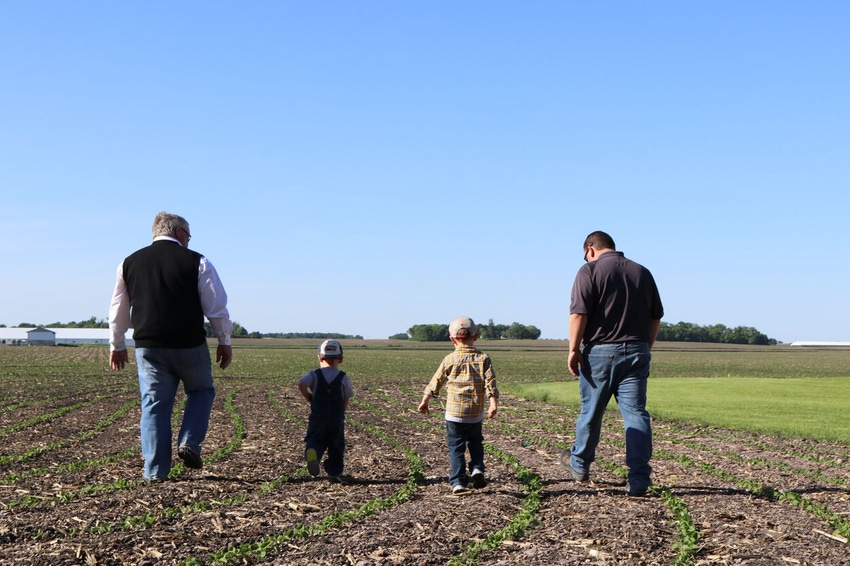Protect American Farmers from the SEC Act introduced
Legislative Watch: Excluding producers from SEC climate reporting rule; Prop 12 before the Supreme Court.

Representative Frank Lucas (R-OK) has introduced the "Protect American Farmers from the SEC Act" which would exclude agriculture from the U.S. Securities and Exchange Commission proposed disclosure rule.
The SEC in March proposed a regulation, the "The Enhancement and Standardization of Climate-Related Disclosures for Investors," mandating companies to report their carbon emissions and other climate-related data, including similar information from their "upstream" and "downstream" affiliates. The public comment period closed in June, and the SEC is expected to issue a final rule later this year.
Lucas said, "…the SEC’s ill-advised climate disclosure rule undermines the materiality standard for environmental policy purposes. The proposed climate rule is so unwieldy and convoluted that publicly traded companies will be forced to require small, independent, family farms to report on-farm data regarding individual operations and day-to-day activities. In this capacity, the SEC would be granted unprecedented jurisdiction over family farms and ranches, hindering the ability of American farmers and ranchers to compete in global markets and creating onerous compliance requirements for operations with few or no employees."
The legislation:
Prohibits the SEC from requiring an issuer of securities to disclose greenhouse gas emissions from upstream and downstream activities in the issuer's value chain arising from a farm.
Prohibits the SEC from requiring an issuer of securities to disclose greenhouse gas.
Defines the production, manufacturing or harvesting of an agricultural product through the Agricultural Marketing act of 1946, outlines upstream and downstream activities, and defines greenhouse gases.
Removes the SEC's exemptive authority in relation to this Act.
This past June, 11 agricultural organizations sent a letter to the SEC requesting it reconsider the burdensome and unnecessary climate disclosure requirements in the proposed rule. The organizations said, "As currently drafted the rule's requirements would overly burden American farmers forcing them to take on costly and expensive reporting that will set back farm environmental performance, and would be in violation of federal law."
Those signing the letter were the Agricultural Retailers Association, American Farm Bureau Federation, American Soybean Association, National Association of Wheat Growers, National Cattlemen's Beef Association, National Corn Growers Association, National Cotton Council, National Pork Producers Council, National Potato Council, North American Meat Institute and U.S. Poultry and Egg Association.
Prop 12 before the Supreme Court
The Supreme Court heard oral arguments on Tuesday in the National Pork Producers Council and American Farm Bureau Federation's case, NPPC v. Ross, challenging California's Proposition 12.
NPPC and AFBF in their brief filed with the Court challenged Prop 12's constitutionality saying it would impose regulations on commerce outside of California. Prop 12 sets production requirements for pork, eggs and veal. It bans the sale of products derived from sows that are not allowed at least 24 square feet of space and the ability to stand up and turn around in their pens.
After the Court hearing, NPPC said in a statement, "As we've contended since 2018, one state should not be able to regulate commerce in another state and set arbitrary standards that lack any scientific, technical or agricultural basis. NPPC presented a strong case and is confident in its arguments presented to the Supreme Court Justices. We appreciate the support of the Biden Administration and look forward to the Court's decision."
AFBF President Zippy Duvall said in a statement, "Today's arguments have implications not just for farmers and ranchers, but for businesses and consumers across the country. At the heart of this argument is whether one state can set the rules for the entire country. Proposition 12 has the potential to put small hog farmers out of business by requiring costly renovations and forces them to adopt practices that farmers and their veterinarians may find harmful to their animals.
"Farmers share California's goal of ensuring animals are well cared for and raised in a safe environment. Unfortunately, Proposition 12's misguided approach will ultimately cost every family through higher food prices."
Lawyers for the State of California and the Humane Society of the U.S. argued in favor of Prop 12.
The Supreme Court is expected to rule on the case in 2023.
Source: P. Scott Shearer, who is solely responsible for the information provided, and wholly owns the information. Informa Business Media and all its subsidiaries are not responsible for any of the content contained in this information asset. The opinions of this writer are not necessarily those of Farm Progress/Informa.
About the Author(s)
You May Also Like



